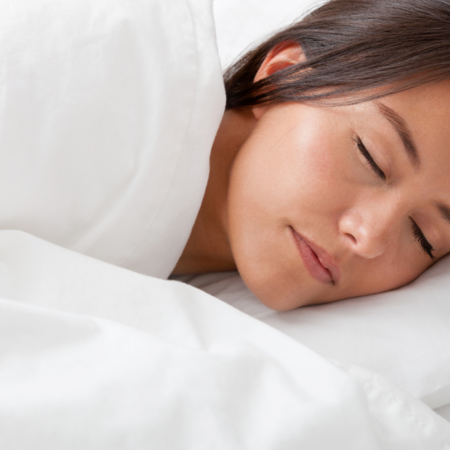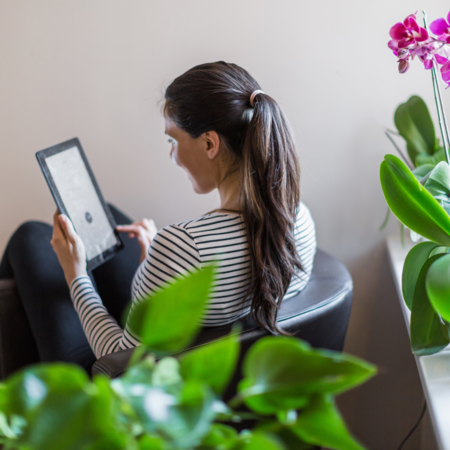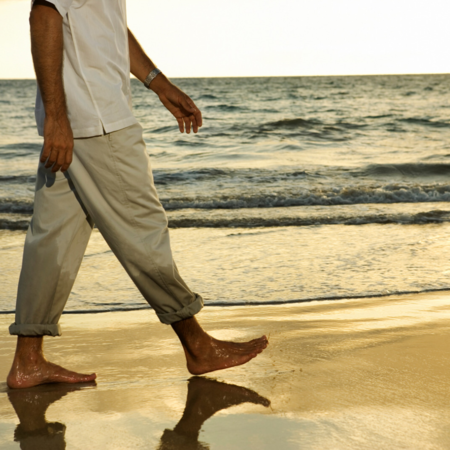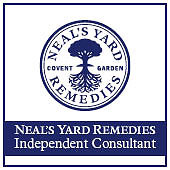
Struggling with the Winter Blues
Feeling more tired during these colder months?
If it’s difficult to get out of bed (or you’re craving more comfort foods), you may be experiencing a condition that affects around 1 in 12 of us in the UK. Common symptoms of the ‘Winter Blues’ include lethargy, weight gain and low mood.
Seasonal Affective Disorder (or SAD) causes more severe symptoms and is another form of depression, mainly affecting women of childbearing age.
Its cause isn’t entirely known but reduced daylight hours at this time of the year may be partly to blame. This causes changes in brain chemistry, resulting in the ramping up of melatonin production (the hormone that induces sleep). Seratonim (the ‘happy’ hormone) also reduces, which may cause a lowering of mood.
This can make life challenging, so if you’re struggling here are some tips that may help…
Finally, please speak to your GP if you feel that you are really struggling.
#seasonalaffectivedisorder #beatthewinterblues

Coping with sickness during pregnancy
Thrilled that you're pregnant, but feeling awful?
Extreme tiredness and nausea are very common symptoms of early pregnancy and may be one of the earliest clues that you’re expecting... Rapidly rising levels of HCG (Human Chorionic Gonadotropin) can cause nausea and/or vomiting that may occur at any time of the day, but this is a normal and positive sign that a pregnancy is developing well.
If you are feeling unwell, these tips may help...
- Listen to your body and rest as much as you can. Go to bed earlier and take a nap if you need to. It may only be possible to have a nap at weekends, but make sure you do it then!
- Never rush, as this will make you feel so much worse! Allow yourself plenty of extra time to get things done or to travel anywhere.
- Have something to eat before you first get out of bed in the morning. Keep some dry crackers, oatcakes or wholemeal biscuits nearby and have a nibble as soon as you lift your head off the pillow!
- Avoid strong smells. Cooking smells may cause a strong reaction and perfume/aftershave/deodorant/air fresheners may make you feel worse.
- Maintain stable blood sugar levels throughout the day. Choosing low GI (Glycaemic Index) foods will help you feel fuller for longer. Try to avoid fatty foods and opt for brown rice/pasta over white and choose wholemeal, instead of white bread. If you really don’t fancy much, just eat what you can. You can choose healthier options when you are feeling better.
- Stay hydrated - especially if you have been vomiting... Take sips little and often, preferably of water, but any fluid is better than none at all. Some women find that they can tolerate fizzy drinks that have lost some of their fizz!
- Ginger can help to settle the stomach. Try infusing a piece of root ginger in boiling water for 5 minutes, remove and allow to cool before drinking. Ginger nut biscuits may also help!
- Acupressure bands (used for travel sickness) help some women, so these may be worth a try.
info@claremintertherapies.co.uk
If you're finding it hard to keep any food down at all, Hyperemesis Gradivarum is a medical condition that will need medical support. Please speak to your midwife/caregiver if you're experiencing prolonged periods of sickness or are at all concerned.
#morningsickness #nausea #earlypregnancy

Case Study - IVF Support
Liz was 40 years old and was working as a busy executive in the City - commuting four days each week and working from home on the other day. She'd been diagnosed with endometriosis in 2007 and shortly afterwards had undergone an operation to re-section part of her bowel.
After struggling to conceive for several years, a laparoscopy in 2016 had found an infected Fallopian tube, which was removed and the other tube also needed to be clipped. This meant that there was a dramatically reduced chance of Liz conceiving naturally...
- When I first saw Liz, she'd had two unsuccessful IVF cycles (including one FET) and she'd used acupuncture to support her throughout this time. She was feeling apprehensive about going through the process again, but felt comforted to know that reflexology (that she'd experienced before and enjoyed) would help relieve her stress and provide additional support.
- During her consultation it became apparent that Liz's work was a massive part of her life and we discussed whether she felt that there was room in it for a baby... She admitted that she'd thrown herself into work, to stop herself thinking about her infertility struggles, but I explained that releasing emotional blockages could help bring about physiological changes within the body and perhaps improve the internal environment, which could encourage an embryo to thrive.
- Liz was having problems with her weight, so we talked about incorporating more low GI foods into her diet (which would help her feel fuller for longer), as losing just a few pounds would be beneficial and could help optimise her chances of success.
- Although her reflexology sessions would encourage deep relaxation, I stressed that Liz needed to make time for regular self care, so I encouraged her to start having relaxing baths and to 'switch off' from her working life earlier in the evening. She started to make more time for her hobbies (she and her husband loved gardening) and enjoyed spending more time outdoors.
During her sessions, I asked Liz how she felt after her reflexology treatments...
"I feel relaxed, calm and happy that I'm helping myself and my body. That hour of peace is so precious and the rhythm and movements of the treatment help promote that feeling. I also enjoy our chats and thank you for listening to me rabbiting on!"
I also asked her how she felt that the treatments helped her prepare for IVF...
"At a time when life is so hectic, an hour of peace and tranquility shouldn't be underestimated and, whilst I can't see any physical changes, I know within me it's helping and that goes a long way to promote positivity and reduce stress."
- Liz attended for weekly/fortnightly reflexology sessions to ease anxiety and help her cope with her drug regime. She also had a treatment on the day before egg collection and another before embryo transfer - which helped to reduce disruptive stress hormones - and I was thrilled when she let me know that her cycle had been successful!
She continued to come along for reflexology support throughout her pregnancy and I was delighted when she eventually gave birth to her longed-for baby boy!
#ivfsuccess #fertilityjourney

The healing power of water
Gazing at water (or 'blue space) places no demands on the brain and surveys have shown that those living close to the coast tend to have better mental health!
Here are some easy ways that you can harness the power of water to boost your overall health and wellbeing:
- Getting outdoors and connecting with nature has a physiological effect on the body and can help reduce stress. Close proximity to water will amplify the benefits, so taking a walk by a river, lake or canal can be a simple way to help you feel calmer.
- If the beach is your happy place, even a day-trip will ensure you get your dose of 'Vitamin Sea'! You can get away from the crowds on the seven mile stretch of Holkham beach in north Norfolk, but get an early start to make the most of the day - and ensure a parking space!
- Swimming is great all-round exercise and is crucially non-weight bearing - which is important if you have joint problems. If you've been looking for an activity to help you get fitter, perhaps shed a few pounds AND increase your mobility, this could be the one for you!
- It’s been found that water-based activities can reduce levels of depression and anxiety and ‘wild’ swimming has been gaining in popularity for just that reason! Head to www.wildswimming.co.uk to find out more. For a gentler alternative, paddle boarding (once you've mastered it!) can be very therapeutic.
- Why not while away a sunny afternoon on a riverbank or at the side of a lake? You could even hire a rowing boat or canoe/kayak and get out onto the water… If you’re near Cambridge, punting is one of my very favourite things to do, but always pay extra for someone to do the hard work for you. Trying to propel a punt yourself is NOT very relaxing!
- A warm bath can be an easy way to unwind before bed-time and may encourage a more peaceful night's sleep. The feeling of water on the skin evokes feelings of security (memories of being in the womb) and helps to ease muscle tension and chronic pain. Ladies, perhaps you opted to spend time during labour in a birthing pool, for just that reason?
- A 'mindful' morning shower will help ease you gently into the day... Enjoy the sensation of warm water trickling over your skin, inhale the fragrance of your body-wash or shampoo and visualise all your worries being washed away down the plug-hole.
- Studies have shown that just looking at water is enough to evoke feelings of calm. So why not change your screen saver to a beach or other water-themed image, to help you feel more 'zen-like' throughout the day?
- And last but not least, drinking water regularly throughout the day, will ensure that your body systems work more efficiently and you’ll keep a clearer head!
#thepowerofwater #bluespace #vitaminsea

A Difficult Pregnancy
Ruth is a 38 year old mum of two (aged 8 and 3), who originally came to see me during her second pregnancy, when she'd been suffering with Pelvic Girdle Pain.
She’d reported feeling a lot more comfortable after her first treatment session and by session three, I was delighted that her pain had practically gone! Ruth continued to attend for monthly reflexology sessions to manage her condition and eventually experienced a wonderful four and a half hour labour - delivering a baby girl at home, weighing 9 pounds, 11 ounces!
- This time around (her third pregnancy) Ruth was struggling and she was feeling tired and emotionally drained. She'd reduced her working hours, but had a responsible and demanding role and was finding it hard to slip back into being 'mum' again when she returned home. Studying for an Open University degree in her spare time was creating lots of additional pressure.
- Ruth had sadly previously suffered a miscarriage at six weeks, but had conceived again relatively quickly. She was therefore cautious and decided to swap her usual high impact exercise classes (that she'd been attending up to 5 times a week), for those that were less demanding. She'd always loved the feeling of freedom she got whenever she did a workout and really missed the endorphin 'high' that she was used to. She was finding it difficult to accept her changing body shape, but had decided to write a blog for a mum's support group, which turned out to be very cathartic.
- At her 20 week scan it was found that Ruth's placenta had a single umbilical artery (SUA) and she was told that she'd need to have regular scans and would be monitored carefully throughout her pregnancy. There were some additional risks for her baby, so understandably the resulting anxiety made her feel 'on edge' and she wasn't enjoying her pregnancy as she might have done.
- As Ruth started to put more weight on, her pelvic pain returned (though the reflexology made her more comfortable) and she also developed plantar fasciitis in both feet... This condition can often arrive out of the blue (particularly if there has been a great deal of stress going on), but reflexology treatments helped to boost blood flow and promote lymphatic drainage, which may speed up recovery... In between her reflexology sessions, I suggested that Ruth used a tennis ball to roll under both insteps, as this could help bring relief.
Ruth continued to come along for regular reflexology sessions and eventually gave birth at home to a healthy baby boy. He was delivered by the same midwife who had delivered her daughter!
I asked Ruth her reasons for returning for reflexology during this pregnancy...
"I'm always keen to take a more holistic, natural approach to health and wellbeing. In pregnancy you are so limited as to any kind of medication you can take, so I was keen to explore ways that I could make it easier for myself, both physically and mentally. You helped me manage my PGP so well, but it became as much about finding time for relaxation as the physical benefits."
I also asked her how her reflexology sessions made her feel...
"I always feel at peace. Very relaxed and I enjoy the benefits for several days, if not a couple of weeks. It's such a positive experience and generally leaves me feeling more physically balanced and mentally in control".
I'm so pleased that Ruth enjoyed her reflexology sessions and that I was able to offer support through this more difficult pregnancy.
#pelvicgirdlepain #pregnancysupport

Struggling to get a good night’s sleep
Perhaps you're finding it harder to ‘drop off’, or waking in the early hours?
Or perhaps you’re experiencing the joys of hot flushes or night sweats, if you’re menopausal?
Sadly, sleep deprivation can become habitual and develop into a chronic condition. Insomnia may have an impact upon your immune system and make you more susceptible to poor physical and emotional health.
The following tips should help encourage a better sleep pattern and improve your overall wellbeing…
Please be patient, as it can often take a while to re-establish a healthy sleep cycle.
Reflexology has been proven to aid more restful sleep, so if you’d like to banish those disrupted nights for good, why not give it a try!
#insomnia #peacefulsleep #sleepawarenessweek

The benefits of cloud gazing
How good does it feel to lay back on soft, warm sand and watch the clouds drifting gently across the sky?
I'm sure we've all done this on holiday, but many of us don’t look up at all, especially when we’re stuck indoors during the winter months!
Cloud watching can have a powerful and beneficial effect upon emotional wellbeing!
Spending just 10 minutes watching the clouds (even through a window, on a gloomy day) is a very simple way to introduce some ‘mindfulness’ into your life.
The many benefits of cloud gazing include:
- Spending time away from screens (TV, laptop, phone) is good for the brain and will give it a chance to 'reboot'!
- Watching cloud formations encourages the use of the imagination. Notice all those shapes! What pictures can you see?
- Your breathing may slow down - it's a simple and rather wonderful way to relieve stress.
- Your eyes will thank you for it - focusing on distant objects may help to ease eye strain (those screens again)!
Most importantly, watching the clouds helps you regain a sense of perspective and you'll feel calmer and more centred!
#emotionalhealth #perspective #wellbeing

Bringing the outdoors in!
Getting outdoors can make us feel so much better!
But did you know that bringing a little of the outdoors in, can have the same powerful and positive impact on physical and mental wellbeing?
Just the act of nurturing a plant, helps to encourage feelings of calm and smelling or touching the leaves can have a strong physiological effect.
Houseplants release oxygen during the day and reabsorb carbon dioxide overnight, helping to remove potentially harmful toxins from the home... In fact NASA research has shown that some can remove up to 87% of air toxins in 24 hours!
I’ve never been the most green-fingered indoor gardener (I usually forget to water), but I’m managing to keep several Peace Lilies (Spathiophyllum) alive!
They are so forgiving and instantly perk up when I give them a drink - and they are actually one of the very best indoor plants for purifying the air!
Studies have also shown that houseplants help improve concentration AND improve productivity - great to know if you’re currently working from home!
So, as well as brightening up your home, turns out that keeping indoor plants could be one of the simplest ways to improve your emotional and physical wellbeing!
#thepowerofplants #greenfingers #mentalhealth

Case Study - Peripheral Neuropathy
Reflexology sessions are a wonderful way to relax and 'switch off', but for those suffering with more challenging health conditions, treatments can be an important step on their road to recovery.
Here is Eric’s story...
- ”Following a diagnosis of cancer, I had six months of chemo and then stem cell replacement - which included a major dose of chemo. After this I was at a very low point in my life, as the chemo had caused peripheral nerve damage, which resulted in me being unable to sleep at night and in constant pain in my lower legs and more so my feet.
I was advised by my specialist that reflexology would help and this was where my luck changed, as I was given a recommendation of the skills of Clare. Having never tried reflexology, I was a little unsure as to what benefit I would get, but was open minded and eager to do whatever i could to help myself at this difficult time.
After my first consultation - when a full explanation was given of reflexology - I realised that I would be getting a lot more from this, as it was a far more complex issue than I’d realised and needed the wide range of skills that Clare has.
After my second treatment I started to see some improvement in my condition and this continued at a steady rate over the following weeks. The advice given on how to change my lifestyle and ways of coping were absolutely amazing and all appear to have helped in the overall progress I’ve made.
I have now done so well under this treatment that my peripheral nerve damage has healed and I am back to a full night’s sleep, which is such a relief after only being able to manage one or two hours a night. I am so glad that I got a recommendation for reflexology and more so for Clare, as the end results of this treatment have made such a difference to my life.”
Eric continues to come along for ‘maintenance’ treatments, as he feels they make such a difference to his quality of life. I’m delighted that his symptoms have reduced and that reflexology has made such a beneficial impact on his overall wellbeing!

Previous Birth Trauma
Have you noticed how animals always retreat to a place of safety to give birth?
Human females are much the same and the birthing process doesn’t tend to start naturally, until we are feeling relaxed and unthreatened...
- The vast majority of babies are born two weeks either side of their 'due date' - with only around 4% actually making an appearance on the day itself!
But a previous negative birth experience can have a big impact on an expectant mum and may delay the natural onset of labour. I am often contacted by those who've been affected, who are still waiting for their little one's arrival, several days post-term.
As a woman prepares for the birth of her baby, she can’t help but think back to any previous birth experience and, if this was in any way traumatic, her brain will start producing stress hormones... These may flood her body and interfere with the production of the hormones responsible for initiating the onset of labour - so she'll 'hold on' to her baby.
One of my clients, Ellen, came along for a reflexology session, a few days before she was due to have medical induction...
- "When I went to see Clare, I was overdue by about ten days with my second child and miserable with anxiety. My first labour had been long and hard and the experience was completely clouding my outlook on giving birth second time round. I went to see Clare ready to try anything but with very little expectation.
What occurred during the session, however, was a huge shift in my relationship with my baby. More than simply a foot massage, Clare pinpointed blocks from my first labour. I hadn't realised the extent of these, nor that I hadn't properly connected with my unborn child and this enabled me to do so in the few days of pregnancy I had left.
I can't quantify the impact of a good gut-spilling chat and some relaxing reflexology. All I know is that as we drove to the hospital to give birth, I wasn't feeling half as fearful as I had been the week before. In fact, I'd go as far as saying I felt in control, empowered and determined that I would have a successful natural birth. Which was huge progress. And with those thoughts in mind, I can honestly say I had the best labour I could have wished for. This made a massive difference to how I felt afterwards, compared to first time round; close to my baby, closer to the rest of the family and pretty hedonistic about motherhood!
So I recommend a session with Clare, because, at the very least, you'll get a nice foot massage - at best it could seriously change your life!!"
I'm delighted that reflexology made such a positive difference to Ellen's second birth experience!
#birthtrauma #positivebirth



